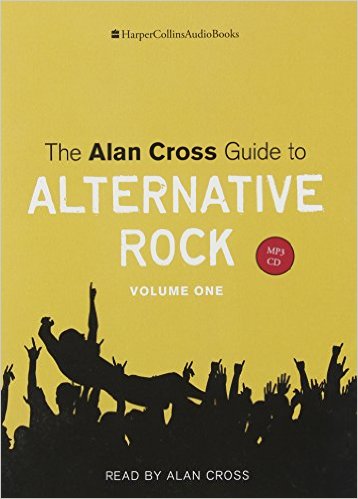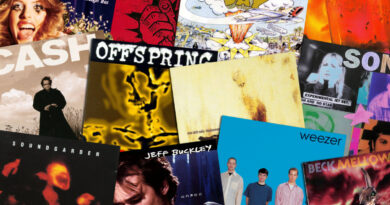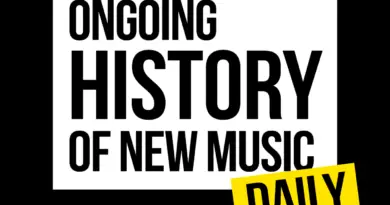
What, exactly, is “alternative music?” Let’s explore the history of that term.
This email from Bob popped in the other day.
Hey Alan,
Just getting caught up on the podcast. Question- is there an episode where you delve into what denotes “alternative”. My wife and I are both GenX- born in late 60s.
I have always been music obsessed but she’s originally from Iran and I’m struggling to explain “alternative.” Her questions: 1. Alternative to what? 2. What happens when alternative becomes mainstream and 3. What were the Velvet Underground if not alternative? Hasn’t there always been alternative to mainstream rock?
Any help greatly appreciated!
Cheers,
Bob Campbell
Let’s see if I can help.
The punk rock explosion of the middle 70s ushered in a whole new era of music that, according to the major record industry and most rock fans, was not ready for prime time. It was a little too weird, raw, reactionary and violent for mass consumption. Radio wouldn’t touch it, either.
But that didn’t mean it didn’t have fans and supporters, of course, for precisely the same reasons it was rejected by the mainstream. Although punk and the music that followed was pushed to the margins, practitioners were cool with that because it allowed them to exist in a parallel universe, untroubled by what “normal” people wanted. In fact, these musicians and fans reveled in being ignored and even hated. That only served to galvanize the various non-mainstream music communities.
There was some crossover. Legend has it that in the late 70s, Seymour Stein’s people at Sire Records had a meeting to figure out how to market some of the less-threatening, less-violent, more melodic, more pop-sensible post-punk music. The term they came up with was “New Wave,” This umbrella term was used to describe and market music from everyone from the B-52s to the Pretenders to the Police to (for a while, anyway) Tom Petty.
Defining New Wave was hard to put into words, but you knew it when you heard it.
Meanwhile, the UK was struggling to come up with its own catch-all term. Music magazines needed a way to categorize this new music that definitely wasn’t punk but by listening to it, you could tell that punk had needed to happen to get to this post.
“Post-punk” was used by several publications. “Post-modern” was pushed by some. Neither really caught on.
As some of this music bubbled up, the most accessible were picked off by the major record labels. Anything with little (or zero) commercial appeal was essentially ignored by the music industry. But that turned out to be a good thing.
Cut off from any kind of access to the mainstream through the standard major label routes, several emerging strands of the North American underground music scene were happily cut off from the mainstream and allowed to evolve in a semi-isolated, self-sufficient and self-government regional enclaves: New York, Los Angeles, San Francisco, Chicago, Minneapolis, Cleveland, Boston, Toronto.
These scenes had their own bands, their own clubs, their own record stores, and their own record labels. It was a layer of rock’n’roll that existed below the radar of the majority of music fans–which is just the way fans of this stuff liked it.
Pushing the message was a loose-knit bunch of underground-friendly radio stations. Some were commercial (CFNY/Toronto, KROQ/Los Angeles, WFNX/Boston) but the vast majority were based on college campuses. Because these campus stations were major champions of this music, some called this emerging thread of rock–Replacements, Pixies, REM, and any number of New Wave and punk bands–“college rock.”
A label was definitely needed because these acts had begun selling records and concert tickets in staggering numbers. But there wasn’t a single sound to link these acts together. They all sounded different and came from different scenes. The only things that bound them together were the (a) that the mainstream wasn’t interested in what they were doing; and (b) they revelled in their outsider-ness.
But not everyone was comfortable calling this “college rock.” Instead, some gravitated toward the word “alternative.” But why?
The etymology of the term “alternative music” is a little murky. Some say it originally described certain forms of FM radio that rose in the 1970s. These stations played music that was slightly…odd. Instead of playing Styx, Journey and Boston–what as called “corporate rock” back then–they spun an occasional punk or New Wave track. This was an “alternative approach” to rock radio.
Another theory involves the independent labels that popped up to service this growing demand. When you couldn’t get a deal with a major label because your sound was just too weird and radical, your only alternative was to try a smaller independent company like SST, Epitaph, Berserkley, Rounder, IRS, Alternative Tentacles or dozens of others.
Therefore, acts who recorded for these alternative labels made alternative rock. And yes, this music was an alternative to the mainstream.
Like I said early, campus stations specialized in this stuff. They played a lot of music from alternative labels. And as campus stations grew in number and influence–and as they became networked by a series of magazines and publications and newsletters–they began to refer to the music they placed in print as “alternative.”
As some of these bands go bigger and began to cross over into the mainstream–REM was one of the first and most successful–the word “alternative” became more widely uses as an umbrella term for the weirder and more raw end of rock. This music didn’t descend from the Beatles, the Stones or Led Zeppelin (i.e. blues- and original rock’n’roll-based music), but from the Velvet Underground, Iggy Pop, David Bowie, and the Ramones.
There was little connective tissue between this music, but you knew it when you heard it. It was an aesthetic, an image, an attitude.
When Gen X took over as the dominant demo of the 90s, it brought its music with them, songs that reflected their hopes, dreams, ambitions, frustrations, anger, and fears. None of those emotions could be found in the mainstream rock of the day, which was dominated by classic rock and the dying days of hair metal. New bands, grown in the parallel universe of alternative music, were embraced. And thanks to grunge (Nirvana’s Nevermind specifically), a dimensional hole was torn between the mainstream universe and the one inhabited by alt-rock. That music gushed through the breach.
And the gush continued for so many years that alternative displaced the mainstream. To put it another way, alternative became the mainstream.
This created a new problem. How could something that everyone was into be an alternative to anything? Truth is, it wasn’t an alternative anymore, but because the of the deep etymology connections of the word, it continues to be used to delineate a certain rock aesthetic even today even though it’s not really any kind of “alternative” in the original sense and spirit of the word. Again, you know it when you hear it.
It’s also been hyphenated to a million different ways to describe other forms of music that aren’t quite normal–or at least a little bit left of centre. Alt-folk. Alt-pop. Alt-country. Alt-metal. Like all rock, alternative has separated, stratified, and forked into many different directions. Adding the “alt-” prefix designates a certain novel approach.
Does that help?
[NOTE: The word “alternative” never really caught on in the UK. But you can use the word “indie” pretty much interchangeably. It’s similar to the way we call it “gas” while the British insist on puting “petrol” into their cars.



